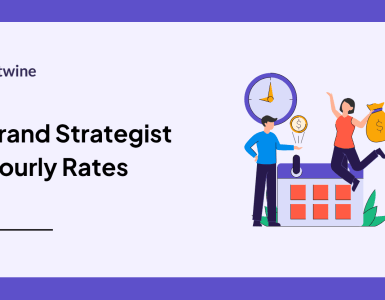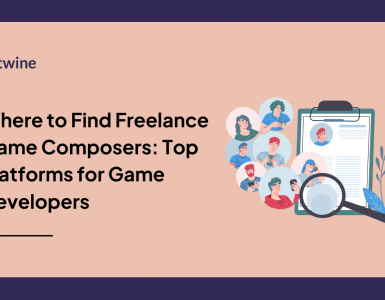In today’s digital age, having a strong online presence is crucial for any business or project. Whether you’re launching a new startup, revamping an existing website, or simply needing a personal blog, hiring a web developer can make all the difference. But where do you start? This guide will walk you through everything you need to know about hiring a web developer, from understanding the different types of developers to the hiring process itself.
Understanding the Role of a Web Developer
A web developer is not just someone who writes code; they are the architects of your online presence. Their role encompasses a variety of tasks, from designing the layout of your website to ensuring that it functions smoothly across different devices. Understanding the different types of web developers is essential before you start your hiring process.

Types of Web Developers
Web developers generally fall into three main categories: front-end developers, back-end developers, and full-stack developers. Each type specializes in different aspects of web development.
- Front-End Developers: These developers focus on the visual aspects of a website. They work on the user interface (UI) and user experience (UX), ensuring that the site is not only visually appealing but also easy to navigate. Front-end developers often utilize frameworks like React or Angular to create dynamic and interactive web applications, allowing for a seamless user experience that can adapt to user interactions in real time.
- Back-End Developers: These professionals handle the server-side of a website. They are responsible for managing databases, server logic, and application programming interfaces (APIs). If your website needs to store user data or interact with other services, a back-end developer is crucial. They often work with server-side languages such as Node.js or Ruby on Rails, and their expertise ensures that data flows efficiently between the server and the client-side interface.
- Full-Stack Developers: As the name suggests, full-stack developers are proficient in both front-end and back-end development. They can oversee the entire development process, making them a versatile choice for many projects. Their broad skill set allows them to troubleshoot issues across the entire stack, making them invaluable in agile development environments where quick iterations are essential.
Skills to Look For
When hiring a web developer, it’s important to look for specific skills that align with your project needs. Here are some key skills to consider:
- Proficiency in Programming Languages: Depending on your project, you may need a developer skilled in languages like HTML, CSS, JavaScript, PHP, or Python. Familiarity with version control systems like Git is also a plus, as it allows for better collaboration and tracking of changes throughout the development process.
- Responsive Design: A good web developer should understand how to create websites that work well on various devices, from desktops to smartphones. This includes knowledge of CSS frameworks like Bootstrap or Tailwind, which can expedite the development of responsive layouts and ensure a consistent look and feel across all platforms.
- SEO Knowledge: Understanding search engine optimization is an added bonus. A developer who knows how to optimize your site for search engines can help improve your visibility online. This includes implementing best practices such as optimizing page load speeds, using semantic HTML, and ensuring that the site is crawlable by search engine bots.
In addition to technical skills, soft skills should not be overlooked. Effective communication is vital, as developers often need to collaborate with designers, project managers, and clients to bring a vision to life. Problem-solving abilities are equally important, as web development often involves troubleshooting unexpected issues that arise during the build process. Furthermore, a passion for continuous learning is essential in this ever-evolving field, where new technologies and best practices emerge regularly.
Moreover, understanding the importance of accessibility in web development is becoming increasingly critical. A proficient web developer should be familiar with the Web Content Accessibility Guidelines (WCAG) to ensure that websites are usable by people with disabilities. This not only broadens your audience but also demonstrates a commitment to inclusivity, which can enhance your brand’s reputation. As more businesses recognize the value of an accessible web presence, having a developer who prioritizes these principles can set your project apart in a competitive digital landscape.
Defining Your Project Requirements
Before you start searching for a web developer, it’s essential to clearly define your project requirements. This will not only help you find the right developer but also ensure that the developer understands your vision.
Creating a Project Brief
A project brief is a document that outlines your goals, target audience, budget, and timeline. It serves as a roadmap for both you and the developer. Here are some elements to include:
- Project Goals: What do you want to achieve with your website? Whether it’s increasing sales, generating leads, or simply providing information, be clear about your objectives.
- Target Audience: Who will be using your website? Understanding your audience can help the developer design a site that meets their needs.
- Budget and Timeline: Be upfront about how much you’re willing to spend and when you need the project completed. This will help narrow down your options.
Determining the Scope of Work
Another critical aspect of defining your project is determining the scope of work. This includes the specific features and functionalities you want on your website. Consider the following:
- Do you need e-commerce capabilities?
- Will your site require user registration or login features?
- What kind of content management system (CMS) do you prefer?
Finding the Right Developer
Now that you have a clear understanding of your project requirements, it’s time to start looking for a web developer. There are several avenues to explore when searching for the right candidate.
Freelancers vs. Agencies
One of the first decisions you’ll need to make is whether to hire a freelancer or a web development agency. Each option has its pros and cons:
- Freelancers: Hiring a freelancer can be more cost-effective and offer a more personalized approach. However, they may have limited resources and may not be able to handle larger projects.
- Agencies: Web development agencies often have a team of skilled professionals, which can be beneficial for larger projects. However, they may come with higher costs and less flexibility.
Where to Find Developers
There are numerous platforms where you can find web developers, both freelancers and agencies. Here are a few popular options:
- Freelance Platforms: Websites like Upwork, Freelancer, and Fiverr allow you to browse through profiles, read reviews, and hire developers based on your needs.
- Social Media: LinkedIn is a great place to connect with professionals. You can search for developers, view their portfolios, and even see recommendations from others.
- Web Development Communities: Websites like GitHub and Stack Overflow are not only great for finding developers but also for assessing their skills through their contributions and projects.
Evaluating Candidates
Once you have a list of potential candidates, the next step is to evaluate them to find the best fit for your project. This involves reviewing their portfolios, conducting interviews, and checking references.
Reviewing Portfolios
A developer’s portfolio is a reflection of their skills and experience. Look for projects that are similar to yours in terms of complexity and style. Pay attention to:
- The quality of design and functionality.
- How well the sites perform on different devices.
- Any notable clients or projects they have worked on.
Conducting Interviews
Interviews are a crucial part of the hiring process. They give you the opportunity to gauge a candidate’s communication skills, problem-solving abilities, and overall fit for your project. Consider asking:
- Can you walk me through your development process?
- How do you handle challenges or setbacks during a project?
- What tools and technologies do you prefer to use?
Checking References
Don’t skip the reference check. Speaking to previous clients can provide valuable insights into the developer’s reliability, work ethic, and ability to meet deadlines. Ask about their experience working with the developer and whether they would recommend them for future projects.
The Hiring Process
Once you’ve evaluated your candidates and found the right fit, it’s time to move forward with the hiring process. This involves discussing terms, signing contracts, and setting expectations.

Negotiating Terms
Before finalizing the hire, make sure to discuss and agree on key terms, including:
- Payment Structure: Will you pay hourly, by project, or on a retainer basis?
- Milestones and Deadlines: Establish clear milestones and deadlines to keep the project on track.
- Ownership of Work: Clarify who will own the final product and any intellectual property rights.
Creating a Contract
A well-drafted contract is essential for protecting both parties. It should outline the scope of work, payment terms, deadlines, and any confidentiality agreements. Having a legal document in place can help prevent misunderstandings down the road.
Managing the Development Process
Once the developer is on board, effective project management is key to ensuring a smooth development process. This involves regular communication, feedback, and adjustments as needed.
Establishing Communication Channels
Clear communication is vital for a successful project. Decide on the best channels for communication, whether it’s through email, project management tools, or regular meetings. Make sure both parties are comfortable with the chosen methods.
Providing Feedback
As the project progresses, providing constructive feedback is crucial. Be specific about what you like or dislike, and don’t hesitate to ask for changes if something doesn’t align with your vision. This collaborative approach can lead to a better final product.
Post-Launch Considerations
After the website is launched, the work doesn’t stop there. There are several post-launch considerations to keep in mind to ensure your site remains effective and up-to-date.

Maintenance and Support
Websites require ongoing maintenance to function optimally. Discuss with your developer about ongoing support options, including updates, security checks, and troubleshooting. Regular maintenance can prevent future issues and keep your site running smoothly.
Measuring Success
Finally, it’s essential to measure the success of your website. Use analytics tools to track metrics such as traffic, user engagement, and conversion rates. This data can provide insights into what’s working and what needs improvement, allowing you to make informed decisions moving forward.
Conclusion
Hiring a web developer is a significant step in establishing your online presence. By understanding the different types of developers, defining your project requirements, and following a structured hiring process, you can find the right candidate to bring your vision to life. Remember that effective communication and ongoing management are key to a successful partnership. With the right developer by your side, your website can become a powerful tool for achieving your goals.
Ready to Hire Your Ideal Web Developer?
Embark on your journey to a robust online presence with Twine. Our marketplace is dedicated to connecting you with top-tier freelance web developers who can transform your digital vision into reality. At Twine, we streamline the process of finding the right talent for your project needs, ensuring collaboration and expertise come together effortlessly. Don’t wait to elevate your project with the specialized skills it deserves – post your job now.



